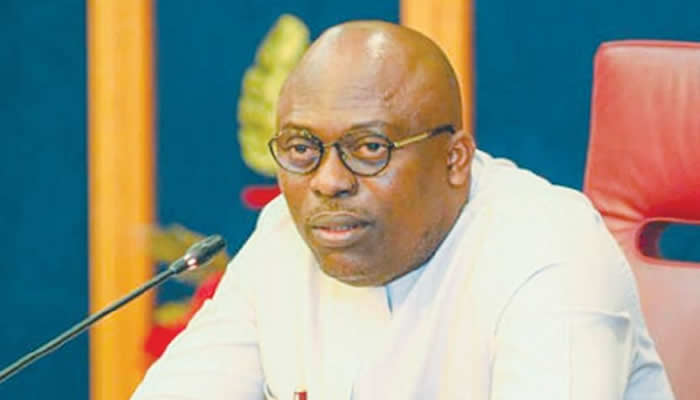The political landscape of Nigeria has been embroiled in a constitutional crisis following the six-month suspension of Rivers State Governor, Siminalayi Fubara, his deputy, and the state’s House of Assembly by President Bola Tinubu. This unprecedented action, taken under the guise of a declared state of emergency, has spurred a legal challenge from seven governors representing the Peoples Democratic Party (PDP). The core issue revolves around the extent of presidential powers and whether the president’s actions align with the provisions of the 1999 Constitution (as amended). The dispute has brought into sharp focus the delicate balance of power between the executive and legislative branches of government, as well as the principle of federalism that governs the relationship between the federal government and individual states.
At the heart of the controversy is the declaration of a state of emergency in Rivers State by President Tinubu. This declaration, which paved the way for the governor’s suspension and the appointment of a sole administrator, has been contested by the PDP governors. They argue that the president acted ultra vires, exceeding the constitutional limits of his authority. The crux of their argument lies in the interpretation of Section 305 of the Constitution, which outlines the specific circumstances and procedures for declaring a state of emergency. The governors contend that the president failed to adhere to these constitutional requirements, rendering the declaration, and subsequent actions, null and void. Their lawsuit before the Supreme Court seeks to clarify the scope of presidential powers during a state of emergency and to affirm the inviolability of the democratic mandate bestowed upon elected officials.
The PDP governors have raised several key legal arguments in their challenge. Firstly, they assert that the Constitution does not grant the president the power to suspend a democratically elected governor, deputy governor, or state House of Assembly, even under a state of emergency. They argue that such an action undermines the principles of federalism and the separation of powers, which are foundational to Nigeria’s democratic system. Secondly, they challenge the validity of the voice vote used by the National Assembly to ratify the president’s declaration of a state of emergency. They maintain that the Constitution mandates a two-thirds majority vote in both chambers of the National Assembly for such a significant decision, a requirement they believe was not met. This raises questions about the legality of the entire process and the legitimacy of the resulting actions.
The suit filed by the PDP governors before the Supreme Court seeks a range of declaratory and injunctive reliefs. They request the court to declare that the president lacks the constitutional authority to suspend a governor, deputy governor, or state House of Assembly under the pretext of a state of emergency. Furthermore, they seek an order nullifying the proclamation of a state of emergency in Rivers State, arguing that it was unlawfully declared and improperly approved by the National Assembly. Their plea extends to restraining the president from implementing the suspension of the Rivers State officials and from interfering in any way with their constitutional and statutory duties. This includes a request to prevent the president from attempting similar suspensions of governors in other states, particularly those represented by the plaintiffs in the lawsuit.
Beyond the immediate impact on Rivers State, this case holds significant implications for the future of Nigerian federalism and the balance of power between the federal government and the states. A ruling in favor of the president could potentially expand presidential powers in times of emergency, raising concerns about the erosion of state autonomy and the potential for executive overreach. Conversely, a ruling in favor of the governors would reaffirm the constitutional limits on presidential authority and reinforce the principles of federalism and democratic governance. The Supreme Court’s decision will have a profound impact on the interpretation of the 1999 Constitution and will shape the relationship between the federal government and the states for years to come.
This constitutional showdown represents a critical juncture in Nigeria’s political landscape. The Supreme Court now bears the responsibility of interpreting the Constitution and defining the boundaries of executive power. Its decision will not only resolve the immediate dispute in Rivers State but will also set a precedent for future situations involving the declaration of states of emergency and the interplay between the federal and state governments. The outcome of this case will undoubtedly shape the course of Nigerian politics and the future of federalism in the country. The nation awaits the Supreme Court’s judgment with bated breath, recognizing its profound impact on the nation’s democratic fabric and the balance of power within its federal system.


